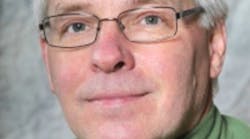Owners of suburban office parks are trying to bring their properties out of the floppy-disk era, at least in eastern Massachusetts, according to Andy Rosen in The Boston Globe.
“Five years ago, the development next door to the Burlington Mall had all the hallmarks of the 1980s suburban office complex—anonymous facades of brick, concrete, and glass, unlimited parking, and an anodyne corporate name: ‘New England Executive Park,’” he writes. “Today, the property at the edge of Route 128 has bike-rental stations, hip eateries that stay open after the sun goes down, and an “OMMM Space” for yoga and meditation. Oh, and they call it ‘the District’ now.”
Rosen recounts the history of Route 128 as the center of the minicomputer industry, while the chip industry grew up in Silicon Valley. But the tech boom in the Boston area has now moved downtown. He explains that 72% of venture capital invested in Massachusetts this year has gone to companies based in Boston and Cambridge—vs. only 12% 15 years ago. That’s despite the fact that office space downtown rents for close to $60 per square foot, vs. $37 in the western suburbs, according to research by real estate firm NAI Hunneman that Rosen cites.
He notes that Route 128 hasn’t become a ghost town, as anyone trying to drive on it can certainly attest. Indeed, companies including Raytheon and Analog Devices remain there, although Analog Devices has established its “Analog Garage” on the 20th and 21st floors of a tower in Boston’s Innovation District. Nevertheless, he writes, “…even as Greater Boston’s tech economy flourishes, businesses in the city and suburbs are fighting over a limited supply of top-flight hires, and the suburbs are losing.”
He quotes Ben Hicks, managing director of the Waltham recruiting firm WinterWyman Search, as saying that tech employers on 128 are “finding it very, very difficult to attract talent.” Rosen notes that a recent WinterWyman analysis found that 63% of the region’s software job openings last year were in Boston or Cambridge.
Nevertheless, city talent can be lured to the suburbs. Rosen describes a software engineer living in Cambridge who takes a shuttle from Cambridge’s Alewife subway station to “the District.” That’s an approach I took when working in Waltham several years ago.
Rosen’s article just addresses the Boston area, although he comments that Silicon Valley and Route 128 had been similarly suburban, although Silicon Valley “…had a much more open and collaborative culture.”
But San Francisco is attracting employers or employees who might once have stayed in the valley. An article earlier this year in RocketSpace looks at the pros and cons of starting a company in San Francisco or Palo Alto.

